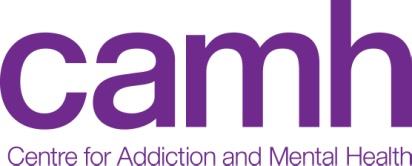
Nicotine Addiction Awareness Scale
Non-Confidential Summary
Market Need
Approximately 15% of the population in North America (34.2 million in the United States and 4.9 million in Canada in 2018) smoke cigarettes. Prevalence of electronic cigarette use has also increased substantially in the recent years, particularly in young adults (46.2% increase from 2017 to 2018 among young adults). Although there are several intervention options available, less than one third of adult smokers seek counseling or treatment with medication. In 2018, only 7.5% of adult smokers reported quitting smoking successfully in the past year. Impaired awareness and the minimization of the need for treatment in persons with nicotine use disorder or nicotine dependence are underrecognized and understudied phenomena that contribute to treatment non adherence and poor clinical outcomes. Cigarette smoking increases the risk of heart disease, stroke, lung cancer, and premature death. Although the safety and long-term health effects of electronic cigarettes or vaping products are still not well known, reported risks include impairment in blood vessel function or lung cells that can lead to heart or lung problems. The true prevalence of impaired illness awareness or illness denial in nicotine use disorder or nicotine dependence and their impact on treatment adherence and outcomes requires further study.
Technology Description
Our scientists have developed a novel and easy to administer self-report measure of illness awareness in substance misuse that can be easily tailored to any substance. The measure assesses the core domains of illness awareness, including general illness awareness, accurate attribution of symptoms, awareness of the need for treatment, and awareness of negative consequences. With 10-point Likert scales for each item, this scale has the capacity to detect small changes in illness awareness.
Stage of Development
Investigators are currently validating the scale and conducting tests for reliability. The scale will be validated in English and potentially other languages for wider use. Upon validation, the inventor plans to create an electronic version, which will facilitate data storage for research studies and clinical use.
Advantages
- Specific to the quantitative assessment of impaired illness awareness or illness denial.
- A user-friendly tool with the capacity to detect small changes in illness awareness scores with the use of 10-point Likert scales for each item.
- Provides a set of questions specific to substance misuse that are within the niche of understanding patient awareness of their illness.
- Offers a screening mechanism to determine which patients are most suitable for medication adherence programs or interventions to enhance illness acceptance and medication adherence.
Business Opportunity
CAMH is leading the development and commercialization of this scale. We are seeking partnerships with pharma, biotech, and hospitals who may be interested in licensing this scale for use in clinical trials and patient assessment.
For more information contact:
Dr. Klara Vichnevetski
Director, Industry Partnerships & Technology Transfer
(416) 595-6056
Centre for Addiction and Mental Health
33 Russell Street, Suite 4039
Toronto, ONT, CDA M5A 2S1
